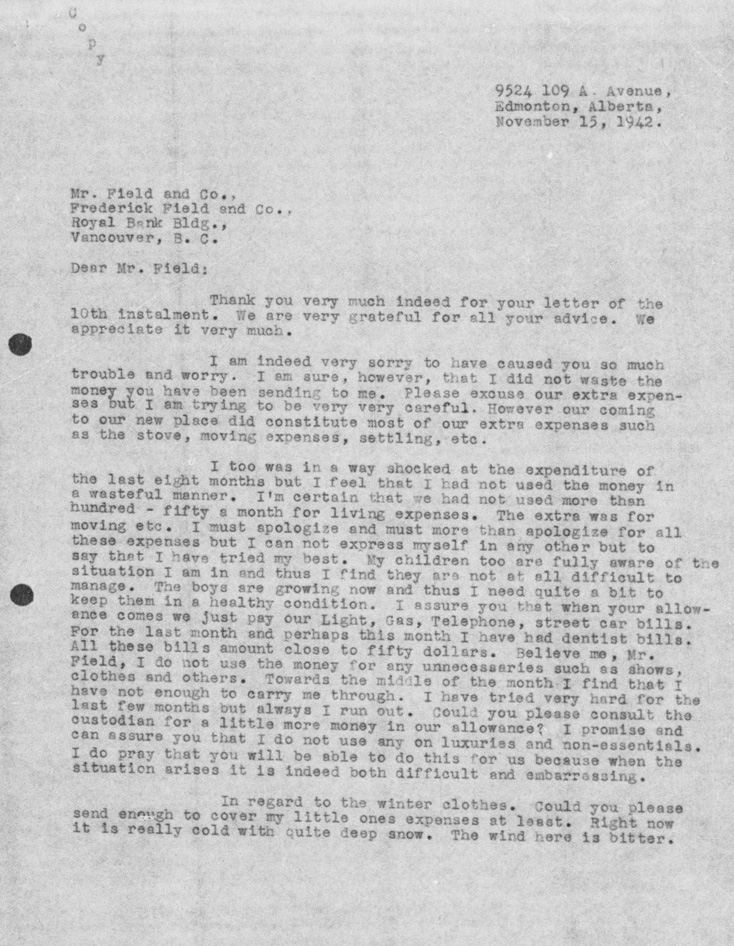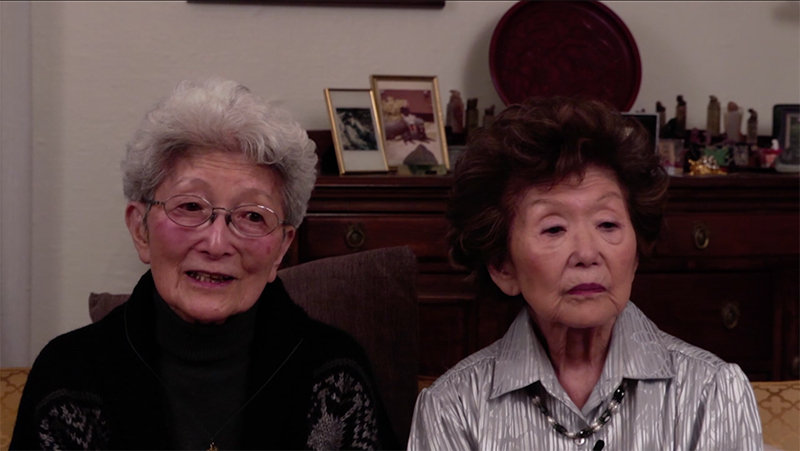Living with State Power

Police took Shinko Nagata’s father from their home on December 7, 1941. Japanese attacks in the Pacific that morning led to the arrest of 38 Japanese Canadians deemed a threat to Canada. Shinko’s innocent father was among them. She would never forget that day.
The arrest marked the beginning of the Nagatas’ seven-year struggle against the Canadian state. At every turn, they faced agencies and individuals who sought to control their lives.
Alone, Shinko’s mother, Naka, fought to preserve their family and to educate their children. To do so, she needed access to the family’s funds. So she negotiated with Fredrick Field, a low-level official who controlled their account.
On November 15, 1942, Naka wrote a lengthy letter to Field. She needed funds beyond the regular allowance. She explained that she had used the funds responsibly. She avoided “luxuries and non-essentials,” including “unnecessaries such as shows, clothes, and others.” Yet, she argued, the $100 monthly allowance allotted was simply not enough to sustain the family of eight.
Her careful letter succeeded. Field granted a one-time payment that allowed the family to buy winter clothing.
For the seven years of the internment and dispossession, the government was always present in the lives of families like the Nagatas. But they pursued their own goals despite overwhelming injustice. The story of the Nagatas, like so many other Japanese Canadians, is a story of perseverance.
 Library and Archives Canada, RG117-C-3 file 9322
Library and Archives Canada, RG117-C-3 file 9322
 Play Video
Play Video
